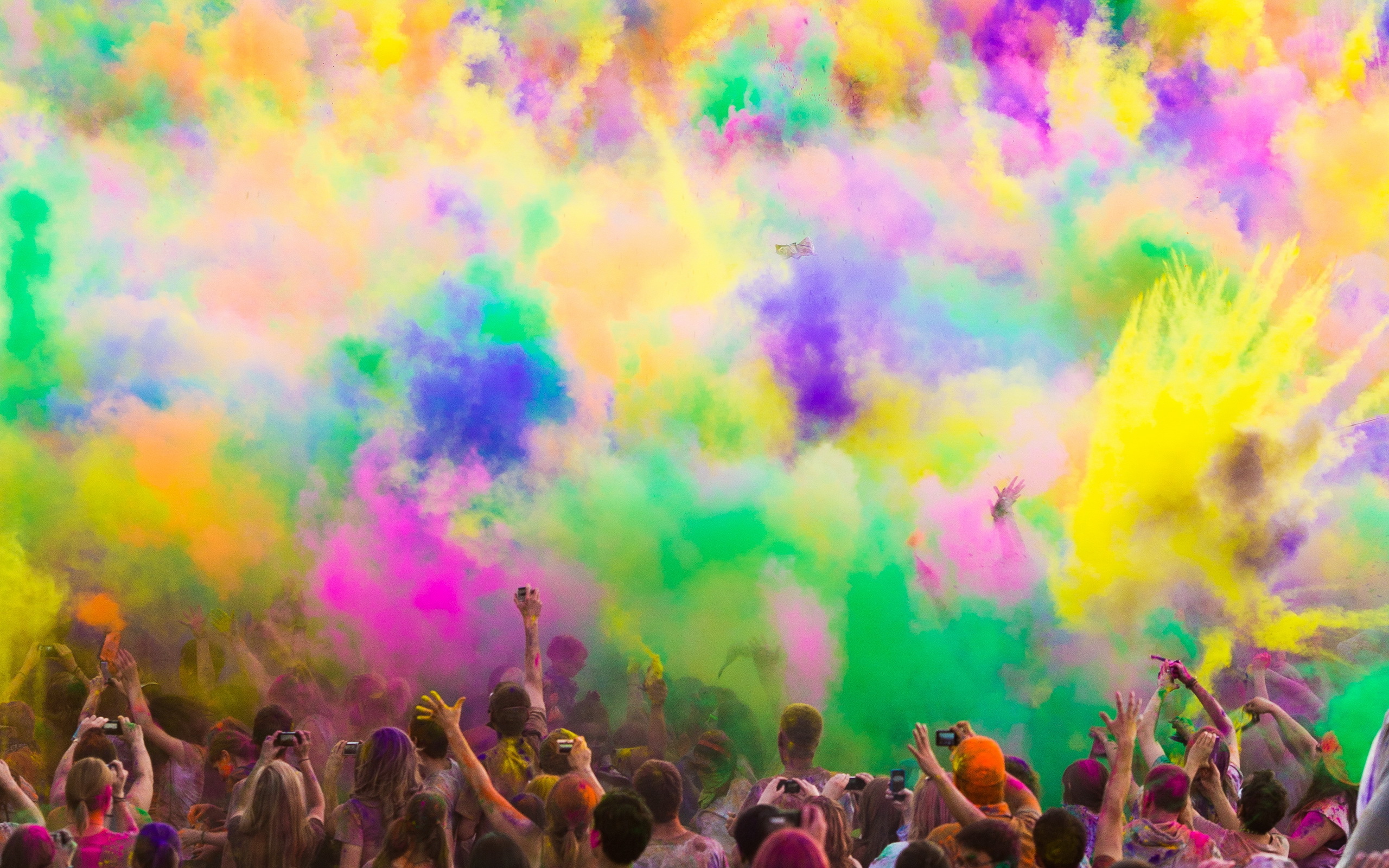This year, I noticed a huge marketing of the celebration of the Indian festival of colour, Holi, on social media. Traditionally, it is a cultural festival celebrated within the Indian community. So I was pleasantly surprised at the extension of the Holi One invitation to everyone. At last a sign of tolerance of cultural festivals – or so I thought.
For millennia, Holi has been celebrated in India to welcome in Spring. Prayers are performed at home or at a temple and then celebrations begin. The colours that Spring brings is symbolised in the fun and games. It’s all about setting free your inner child to happily throw around coloured powders and naughtily smear it on friends when they least expect it.
Based on the Hindu holy day, the Holi One festival, held in Cape Town earlier this month hailed 10 000 people all dressed in white to celebrate with music played by top DJs. Every hour, a countdown released a burst of coloured powder into the air. Revellers partied to the uplifting electronic music, whilst simultaneously getting higher with alcohol and whatever else…
Thinking back on Diwali, I had hoped both Hindus and non-Hindus would be more tolerant of each other so that the holy day could be observed and celebrated. A few months later, we have an abundance of acceptance of Holi from non-observers. Participation even!
I can’t help but wonder whether this acceptance isn’t the mark of a society changing its tolerance levels but rather of a society that is conveniently tolerant. The right to celebrate Holi isn’t publicly called into question as it was by many for Diwali. Probably because Holi One is fun – or rather deemed as tolerated fun. Even though it’s based on the Hindu festival of Holi and borrows many of its attributes, the Holi One festival is essentially one big party featuring many things that Holi is not.
When organising a festival that is meant to promote peace, love, happiness, tolerance and unity, one would think that the organisers would have involved the people where the concept is borrowed from. True religious tolerance would have steered the organisers to speak with Hindu people or perhaps even a body that represents them nationally like the Hindu Maha Sabha. Instead, the event was heavily promoted on social media for ticket sales without much of a thought of the people who have celebrated the festival for thousands of years. The result is unhappy Hindus who feel like their religious festivals are disrespected, tainted and commercialised.
A ridiculous analogy would be like organising a huge party on Ascension Day in Europe. We could celebrate with the release of helium balloons or fire lanterns every hour representing Jesus’ ascension into the heavens. Let’s bring on the best DJs, hottest electronica and hand out acid and various other psychedelics so that we can all get high for the occasion.
We can’t protect every religious and cultural festival from being commercialised and stripped off its true meaning. With better management and consultation, perhaps a compromise could have been reached to avoid encroaching on something culturally sensitive.
There are many successful religious festivals that, although commercialised, still maintain their religious essence without disrespecting the religion such as the festivals for the Chinese New Year, Diwali and Christmas.
It’s Holi One this year. How would you feel when next year the party is Ramadaan One, Yom Kippur One or Easter One?
